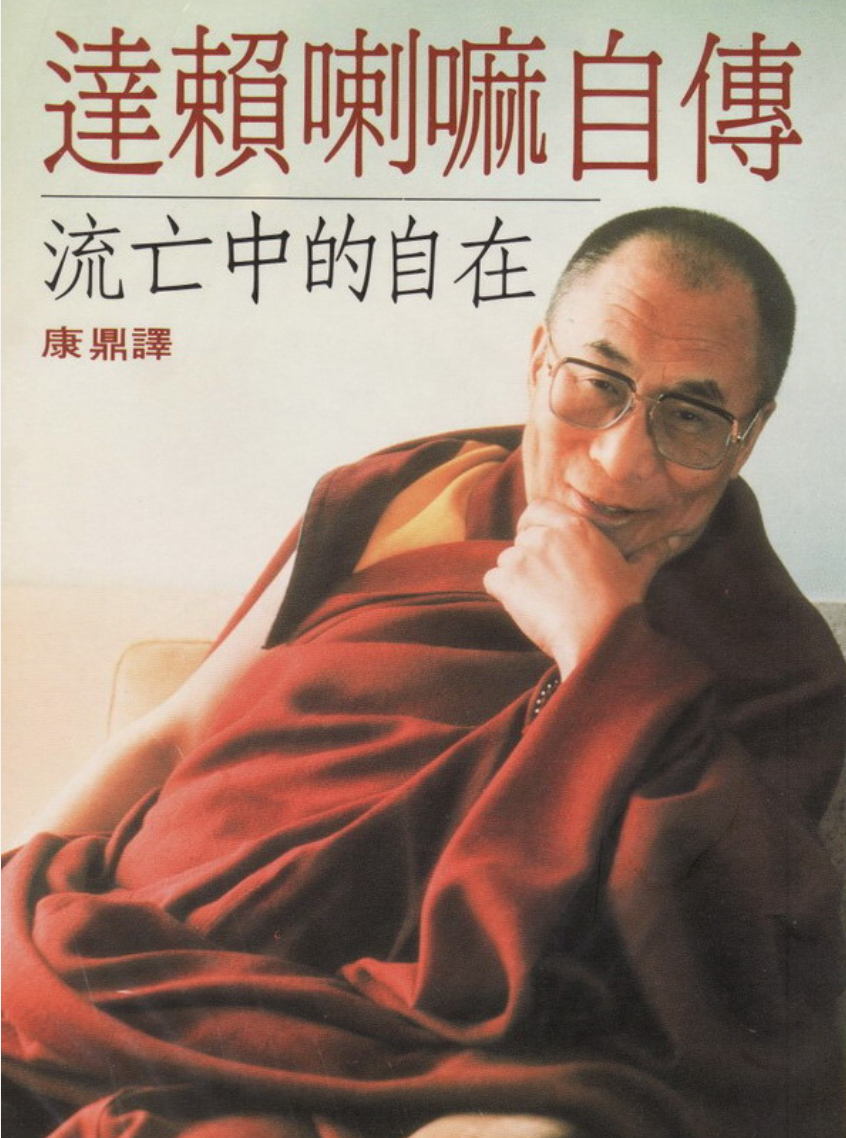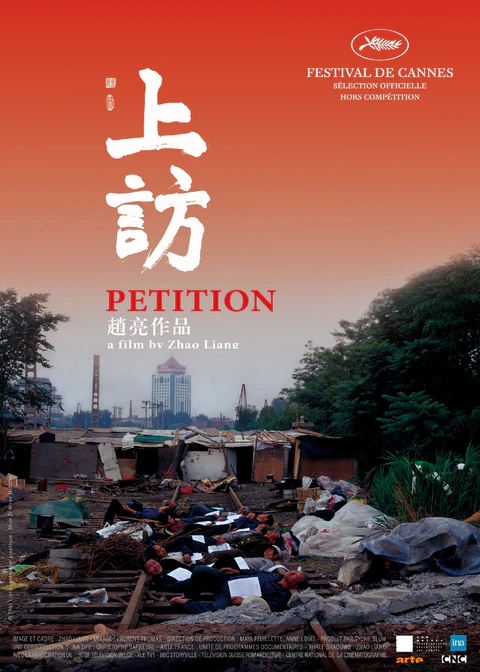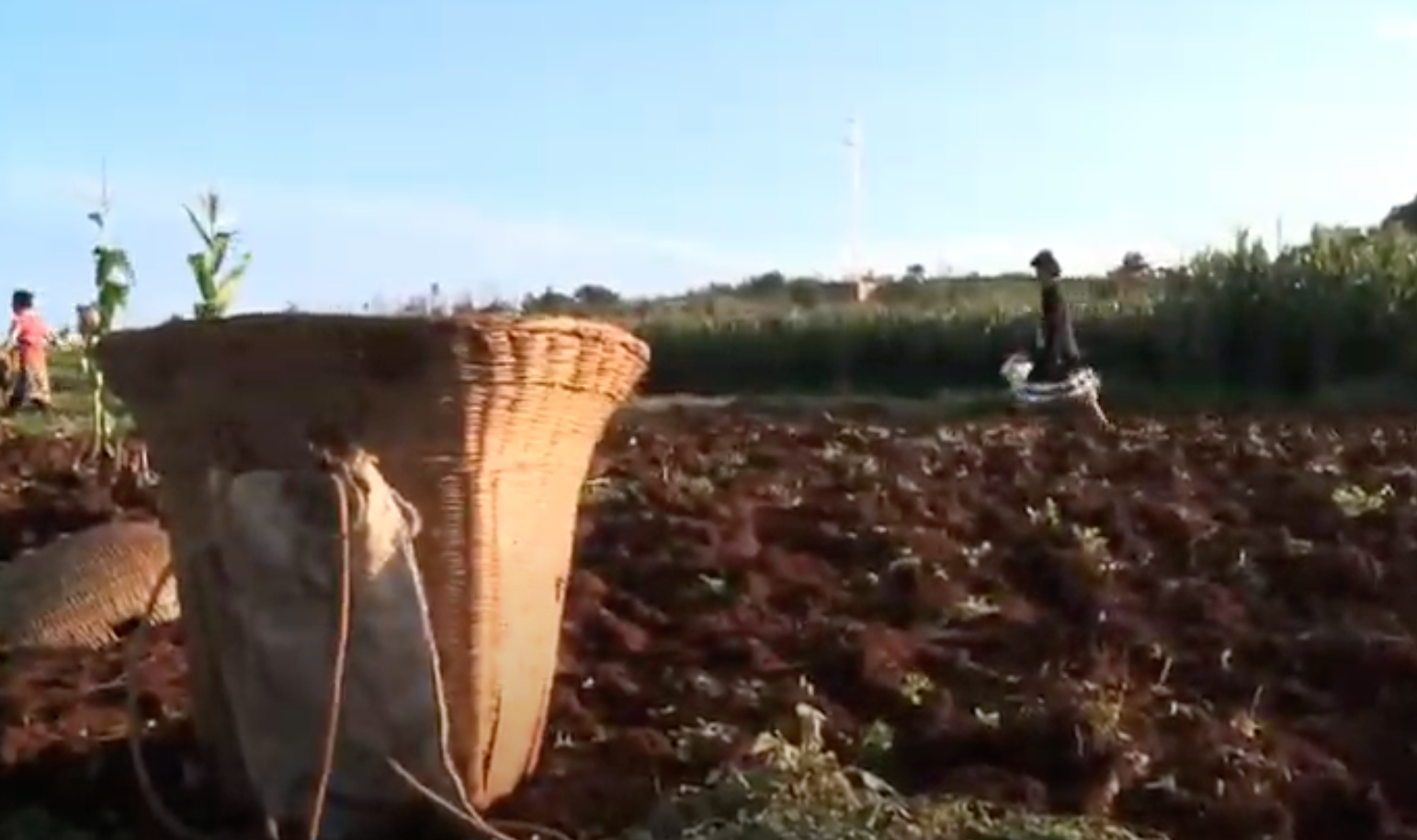Explore the collection
Showing 12 items in the collection
12 items
Film and Video
Garden of Paradise
The year 2003 was known as the birth of the Weiquan—the rights defense–movement, which was marked by the Sun Zhigang incident in Guangzhou. At the same time, a campaign began to get justice for Huang Jing, a teacher from Hunan who was sexually assaulted and killed by her boyfriend. The campaign involved the victim’s family, netizens, feminist scholars and activists, and lasted for several years. This documentary records the process of Huang Jing’s case from filing to post-judgement, and analyzes the broader issue of sexual violence against women in China.
The films in this series are in Chinese with Chinese subtitles.
Book
Pastor Wang Yi's Anthology: Carrying the Cross - A History of Chinese Family Churches
Wang Yi, of Chengdu, Sichuan Province, is a well-known Chinese intellectual who later became a pastor. The Early Rain Reformed Church that he led was one of the most famous unregistered churches in China. The church occupied the floor of an office building in Chengdu and had its own bookstore, seminary, and pre-school. It regularly had services of hundreds of people. Later, the church had internal conflicts, while at the same time Wang became more outspoken in his criticism of the government. In 2018, he criticized Xi Jinping for abolishing term limits and allowing himself to become ruler of China for life. Pastor Wang was sentenced to nine years in prison in 2019.
This book is based on the recordings of Pastor Wang's classes at Early Rain in 2018. The first five chapters were reviewed by Pastor Wang himself, but he was arrested before he could complete the review of the last five chapters. The essays cover key issues that concerned Wang, including the role of the church in China as a city on the hill, the role of the Reform church in China, and the history of unregistered churches in China.
Film and Video
Petition
The domestically-released version of "Petition" consists of three parts: “The Masses,” “Mother and Daughter” and “Beijing South Railway Station.” Part one, “The Masses,” brings together the stories of petitioners of various backgrounds, who all for different reasons, ended up walking the same path. “The Masses” gives a comprehensive account of what is petitioning and and follows the process.
Part two, "Mother and Daughter," follows the story of Huaying, who brought her daughter Xiaojuan alongside her from the countryside of Jiangsu to Beijing to petition when Xiaojuan was only four years old. Over the next twelve years, they lived a wandering life. "Mother and Daughter" spans the longest period among all the parts of Petition, from 1996 to 2008. It witnesses the growth of Xiaojuan over ten years of petitioning, not only describing the sorrow of Chinese petitioners, but also revealing how long-lasting petitions cases affect the fate of the next generation. In official reports, petitioners lack a voice and appear to be even more marginalized under the media’s tactics. It also raises the issue of forced psychiatric confinement of individuals the Chinese government deems difficult.
“Beijing South Railway Station" surveys the "petitioner village," a residential area near the station that was once home to tens of thousands of people from all over the country. It was eventually demolished by authorities in preparation for the 2008 Olympics. The film captures bungalows being knocked down, shacks being flattened, and security police chasing after residents, the latter not given the time to grab any necessities.
Zhao Liang recalls dressing like the interceptors when filming interceptors, and dressing like a petitioner while filming petitioners. “I had several outfits, and tried to stay low key, using the smallest cameras possible.” The film went on to win the Halekulani Golden Orchid Award for Best Documentary Film at the 29th Hawaii International Film Festival, and a Humanitarian Award for Documentaries at the 34th Hong Kong Film Awards.
Book
Sky Burial: The Fate of Tibet
In this book, author Wang Lixiong presents his arguments with a great deal of personal experience and field work. The book covers the history of the Tibetan issue, the current situation, and various aspects. The book was first published by Mirror Books in Hong Kong in 1998, and an updated edition was released in 2009.
Film and Video
Songs of Maidichong Village, The
This film was shot in a village called Maidichong in the mountains of Yunnan Province. The village is inhabited by a community of Miao people who are Christians. 100 years ago, the British missionary, Mr. Burghley, came to this village, fostered the Miao language, and brought faith, education, and medical care to the Miao people. This movie tells this history and how their journey of faith was brutally suppressed during the Cultural Revolution. It also presents the challenges they face today.
Film and Video
South Side Street
South side Street near Tiananmen Square in Beijing has long been a gathering place for some homeless people as well as petitioners. The director became involved in the homeless relief charity in 2007, and continued to follow the film, which the director finished editing eight years later. The film was selected for the 12th China Independent Film Festival Documentary Competition.
Book
The Doubtful Clouds of 1957-- Cracking the Code of the Anti-Rightist Movement
The Anti-Rightist Movement in China began in 1957 with the reorganization of intellectuals, followed by the Great Leap Forward, the People's Commune, and a series of calamities such as the Great Famine. The Hong Kong Five Sevens Society was founded in 2007 with the aim of collecting, organizing, and researching historical information about the Anti-Rightist Movement. It is headed by Wu Yisan, a writer who moved to Hong Kong from mainland China. The author of this book, Shen Yuan, who was also a Rightist at the time. He has systematically researched and organized the Anti-Rightist Movement that took place in 1957 and attempted to answer some of the unanswered questions.
Book
Tibet in Agony: Lhasa 1959
Traveling Chinese history scholar Li Jianglin began working on the Tibet issue in 2004. She has traveled to India every year in search of Tibetan refugees, visited 14 Tibetan refugee settlements in India and Nepal, contacted more than 200 exiled Tibetans from the three regions of Tibet, and personally interviewed the Dalai Lama in Dharamsala, the seat of the Tibetan government-in-exile, in 2008. In 2010, Li Jianglin completed her book <i>Lhasa 1959!</i> by drawing on interviews, information searches, and rare historical photographs provided by the Tibetan government in exile, in the hope of reconstructing the little-known history of the Dalai Lama's departure from Tibet in 1959. The book was published by Taiwan's Lianjing Publishing House in 2010 and reprinted in 2016.
Book
When the Iron Bird Flies: China's Secret War in Tibet
Around the eighth century A.D., the founder of Tibetan Buddhism, Guru Rinpoche, prophesied, "When the iron bird flies in the sky and the iron horse runs on the earth, the Tibetans will be dispersed all over the world like ants, and the Buddha's Dharma will be spread into the land of the red people." More than 1,000 years later, in the middle of the 20th century, the Chinese Communist Party drove the "iron bird" across the sky and rode the "iron horse" across the plateau. The Tibetans courageously rose up to resist resulting in with countless deaths countless deaths. Those who survived were forced to leave their homeland and live in exile in India, drifting around the world. Thus, the prophecy came true. From a military point of view, the Tibetan war in Tibet was a victory, but it received only minimal publicity. The official version of the Party's history is either vague or evasive about the bloody massacre during the entry into Tibet, attempting to cover it up by "suppressing armed rebellion" and "purging counter-revolutionaries". More than sixty years later, this war has yet to be demystified. Li Jianglin, an independent scholar, was moved by the tragedy of the war and the plight of the Tibetans, and endeavored to restore the historical facts. Since 2004, she has devoted herself to research, visiting hundreds of Tibetan elders, searching for tens of thousands of historical materials, collecting military archives, and comparing them with the official published materials of the Communist Party of China, in order to present memories of past, little by little.
Film and Video
Why Are Flowers So Red
This film follows the stories of environmental activist Tan Zuoren and artist Ai Weiwei. In July 2009, Tan Zuoren was charged with the crime of “Inciting subversion of state power,” and his trial was held in Chengdu, Sichuan Province. Ai Weiwei was invited by Tan’s lawyer to testify in court, but the night before the trial, he was assaulted by the police and detained in a hotel. To everyone’s surprise, Ai turned on the tape recorder before the police entered his residence and managed to record the incident. Later, Ai and his colleagues released a documentary about this incident, titled “Disturbing the Peace” (or “Laoma Tihua”).
This film interviews the people behind the scenes of “Disturbing the Peace,” including the director, photographers, editors, and audiences of the film, who discuss the relationship between citizens and government authority.
This series of films are in Chinese with Chinese subtitles.
Film and Video
Beijing's Petition Village
In China, individuals can complain to higher authorities about corrupt government processes or officials through the petition system. The form of extrajudicial action, also known as "Letters and Visits" (from the Chinese xinfang and shangfang), dates back to the imperial era. If people believe that a judicial case was concluded not in accordance with law or that local government officials illegally violated his rights, they can bring it to authorities in a more elevated level of government for hearing, re-decide it and punish the lower level authorities. Every level and office in the Chinese government has a bureau of “Letters and Visits.” What sets China’s petitioning system apart is that it is a formal procedure—and as Zhao Liang's documentary shows, the system is largely a failure.
A residential area near Beijing South Railway Station was once home to tens of thousands of residents from all over the country. Known as “Petition Village,” its bungalows and shacks were demolished by authorities several times, but many petitioners still clung to the land in search of a clear future. _Beijing Petition Village_ portrays the village in the midst of this upheaval, focusing on the thousands of civilians who travel from the provinces to lodge their complaints in person with the highest petitioning body, the State Bureau of Letters and Visits Calls in the province, only to repeatedly get the brush-off by state officials. Ultimately, in 2007, Petition Village was demolished for good.
The film went on to win the Halekulani Golden Orchid Award for Best Documentary Film at the 29th Hawaii International Film Festival, and a Humanitarian Award for Documentaries at the 34th Hong Kong Film Awards.











